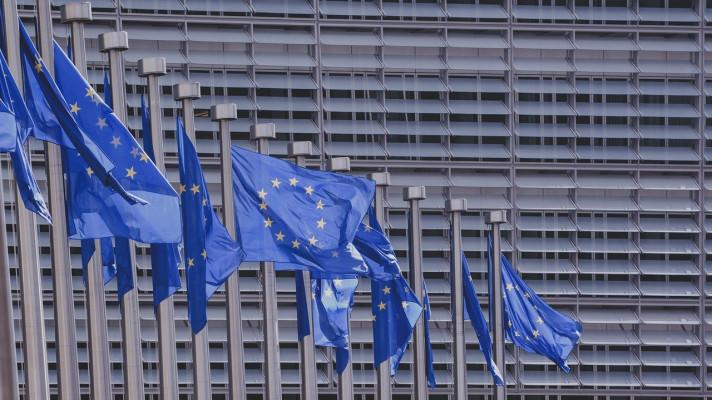5 THINGS THE NEW GERMAN GOVERNMENT WILL MEAN FOR EUROPE'S ENVIRONMENT
After marathon talks, and more than four months after voters went to the polls, German politicians finally look set to form a new government - and Angela Merkel will retain her place as Europe's longest-serving elected leader.
As the EU's biggest Member State, what happens in Germany matters for people across Europe. So with the Christian and Socialist parties having negotiated a coalition agreement, META takes a look at what the new German government will mean for Europe's environment and how some EEB members have responded:
1. The Angela Merkel-Germany-Coal 'love triangle' survives - for now
Merkel power and coal power have a lot in common. They are both inevitably going to be phased out, yet the country - and its politicians - seem to be excessively afraid of a future without them.
Still, while Germany is likely to move beyond Merkel before it moves beyond coal, we might know more about the end date for German coal much sooner than Merkel announces her retirement. That's because the coalition agreement contains a promise that Germany will have set its coal phase out deadline by early 2019.
This promise is less than some had hoped. BUND was critical about the decision to abandon 2020 climate targets, saying the decision "ignored a key election promise that a big majority of voters cared about" and that "the coalition negotiators caved in to the coal lobby"
2. Germany's not about to solve Dieselgate - or clean up its toxic air
Environmental groups were particularly critical of the coalition agreement's lack of action on Germany's air quality problem. NABU said that the coalition partners were supporting the status quo as usual and that limited proposals to improve transport policy were "shockingly faint-hearted".
Germany was one of nine countries recently called to Brussels to explain its failures to improve air quality and given a dressing down by Environment Commission Karmenu Vella. The new government may find out it is facing being taken to court by the Commission next week.
The coalition agreement fails to remove government subsidies for diesel cars or set stricter limits on emissions from personal vehicles and trucks. NABU also said that plans that could reduce the level of public participation in decisions about infrastructure projects - including the building of new motorways - were "out of the question".
3. With the EU's Common Agricultural Policy up for discussion, there's no obvious sign Germany will be leading the charge for a new food and farming policy
While the agreement contains some proposals for insect protection, pesticide reduction and the land use reform, these have been criticised for lacking clear and binding targets and the money required to make them work.
DNR said that while comments about the Common Agricultural Policy clearly point to the need for reform, the proposals contained in the agreement were akin to "rearranging the deckchairs on the sinking Titanic".
4. Germany will (not even?) do the absolute minimum required to follow EU rules
Any aspirations of German leadership on EU environmental issues appear to have been abandoned. That's according to DNR, which said that it wasn't even clear that Germany would maintain its policy of implementing EU laws on a one-to-one basis.
The DNR also pointed out that: "There is no other EU Member State this is facing as many infringement proceedings for failure to properly implement EU law as Germany".
5. It's bad news for wolves but good news for wilderness
The coalition agreement also contains a plan for the "lethal reduction" of the protected wolf population in Germany: a proposal strongly criticized by a number of groups.
Deutsche Umwelthilfer said: "For the last hundred and sixty years the only physical harm that a wolf has done to a human has been in fairy tales".
NABU welcomed what they said was the first time that the protection of insects and wilderness was being made a political goal and DNR backed the coalition's intention of backing an EU nature protection fund for wilderness areas.
"This story first appeared on the EEB news channel METAmag.org and you can see it by clicking here"
